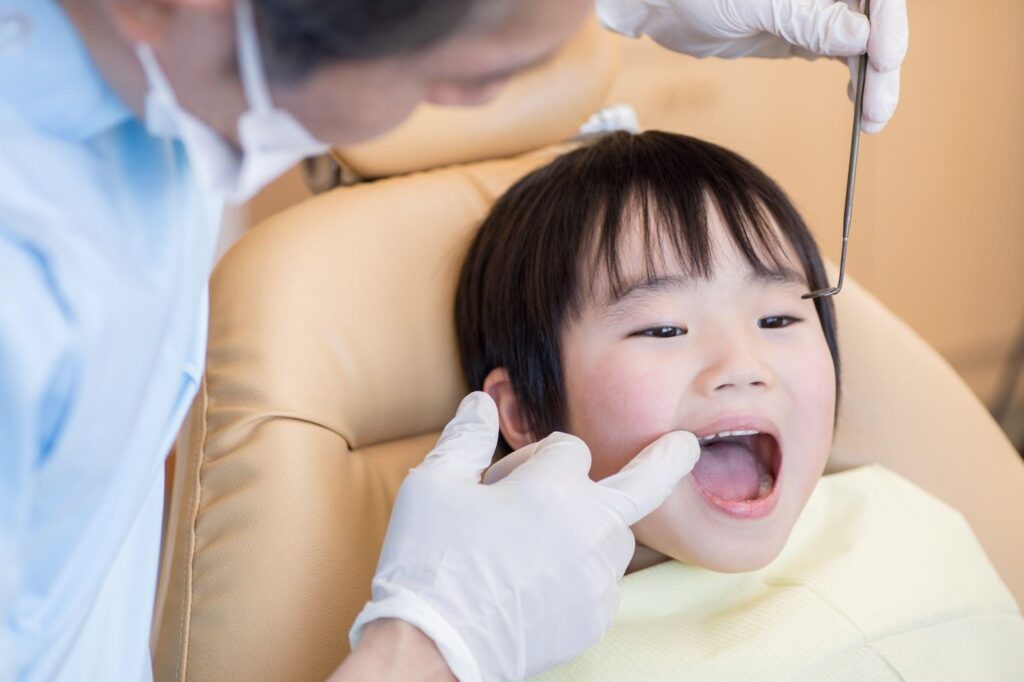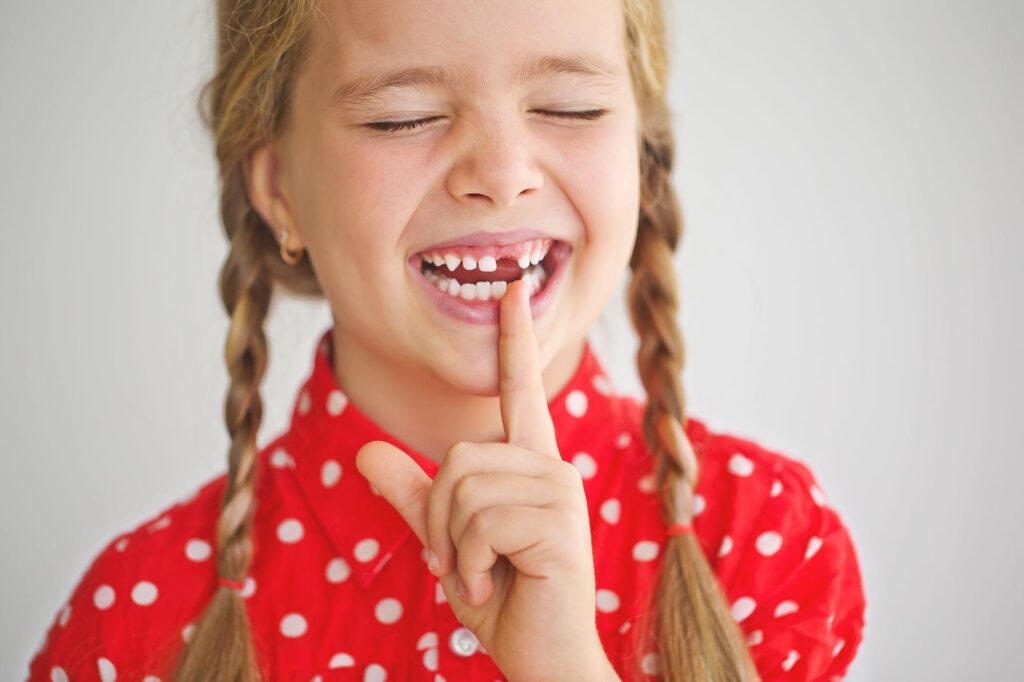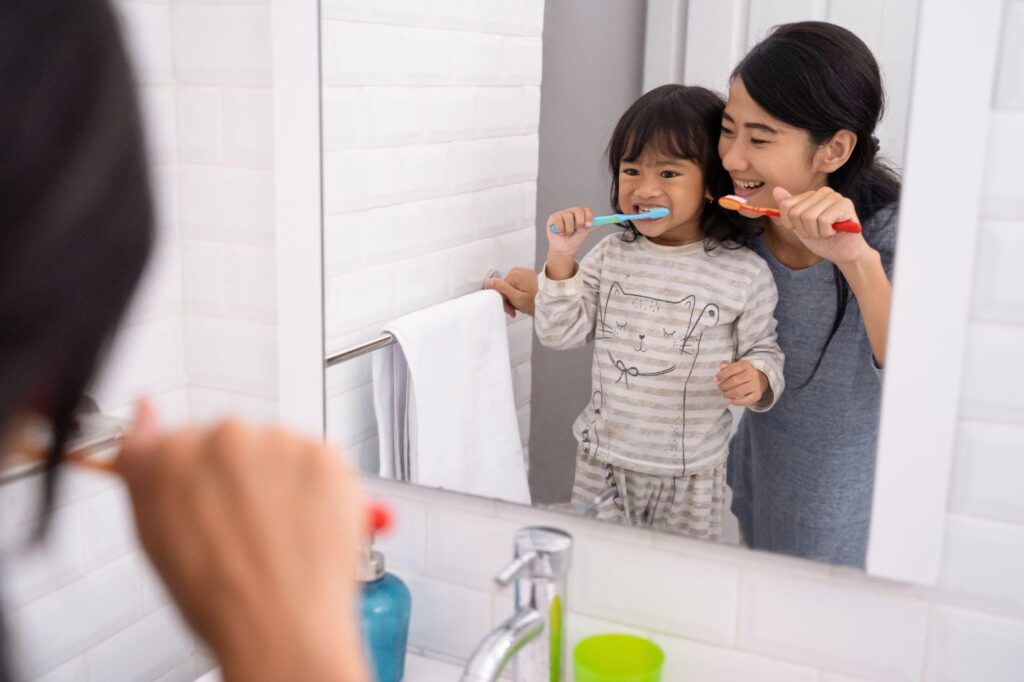Toddler Cavities: What Causes Them and How to Avoid Them

It’s a common misconception that toddlers don’t require a lot of dental care. They’re just starting to get their baby teeth in, and those are going to fall out soon enough. So, why bother to do much more than basic brushing?
Well, there are a number of reasons, and today, we’re going to go through it all in detail regarding toddler cavities.
Let’s get started!
What Causes Toddler Cavities?
Toddler cavities are just like any other cavities you’ve dealt with. They’re typically not as common if a regular dental care routine is in place because the teeth are so new that they haven’t had much time to develop cavities.
On top of that, by the time they start developing, the child is usually starting to lose their baby teeth.

However, they do occur, and it’s not uncommon.
Toddler cavities are caused primarily by two main forces: neglect and bad habits.
When we say neglect, we don’t mean it in an insulting way. The toddler years are often difficult to build routines in because you’re still having trouble communicating with your child.
We simply mean that teeth tend not to be brushed as regularly, the child doesn’t cooperate through a full brushing cycle, or an appointment or two gets missed due to the hectic nature of raising a toddler.
Even if everything isn’t done perfectly, it still takes a while for cavities to pop up. These are brand-new teeth we’re talking about, after all.
However, when that form of dental neglect crosses with bad habits, the problem is compounded.
For the most part, this comes down to the child’s diet. One of the basic principles of preventive pediatric dentistry revolves around the fact that eating loads of sugary or acidic foods greatly increases the chances of toddler cavities. That doesn’t mean that kids can’t have those things, but they need to be limited.
When regular brushing and dental care aren’t performed, a poor diet is even worse for teeth. The sugary junk food just sits on the teeth, eroding them for long periods of time.
However, there are other issues that cause toddler cavities. If your child still uses a bottle or binky during the early stages of their toddler years, the contents of the bottle and the sugars within will sit on their teeth and damage them.
Especially if you leave them with a bottle overnight. The binky isn’t as bad, but it creates other problems with teeth.
Other things to consider are nutritional deficiencies that keep teeth from building enamel-like they’re supposed to, over-brushing that strips enamel, and untreated damage that invites bacteria into the interior of the tooth.
Are Toddler Cavities Important?
This is one thing parents, understandably so, mess up. Toddlers are only going to have their baby teeth for a few more years, and then they’ll all fall out to make room for their permanent teeth. So, if a cavity forms, why not just let that tooth fall out?
Well, there are two reasons why handling these issues is important.
First, there’s the matter of building healthy habits. If you get your child into the habit of handling dental care issues early and maintaining a healthy dental care routine, they’ll carry that with them into adulthood. That means fewer dental issues when it really counts with teeth they don’t grow back.
However, it goes beyond just forming habits.
Permanent teeth are forming underneath your child’s baby teeth, and the baby teeth set the stage for those permanent teeth. If cavities cause deformities, permanent teeth might be affected. Damaged teeth tend to shift and weaken, which causes issues with tooth development, etc.
Not to mention, cavities can be painful, and they can explain a lot of unexplained fits, crying, and similar symptoms. That’s uncomfortable for your child and you.
So, it’s best to handle toddler cavities the same way you would cavities in adult teeth.
How to Avoid Toddler Cavities
Now that you know you can’t just let the baby teeth fall out without worrying about cavities, how do you avoid them?
It’s simple. Here are a few tips.
1: Stop Overnight Feeding and Wipe Budding Teeth Regularly
The first step starts when your toddler is just exiting infancy. Try to get them off the bottle as soon as they can, and don’t let your child sleep with a bottle in their mouth.
On top of that, get into the routine of wiping an infant’s gums, and eventually tooth buds, twice per day with a wet cloth. You can’t use toothpaste at this stage, but simply cleaning them off with a cloth will do wonders.
2: Brush Regularly
Once your infant does become a toddler, start brushing regularly with fluoride toothpaste. Twice per day for 2 minutes each cycle is enough.

This will clean their teeth and prevent cavities, and it will start building the habit early.
3: Limit Tooth-Damaging Food and Drink
Candy and soda are obvious things that parents have to limit to protect their children’s teeth and overall health, but there are other items you might not have thought about.
Fruit is acidic, and while generally healthy, it should be limited to reasonable amounts to prevent damaging the enamel of the teeth. The same goes for off-the-shelf juice drinks. Not only can they be acidic, but they also tend to be loaded with sugars.
Limit such items to healthy amounts while maintaining a good brushing regimen, and your child can get the nutrients they need without damaging their teeth.
4: Regular Dental Exams
Sometimes cavities and issues that can cause cavities can be detected early. If they are, a pediatric dentist can stop those cavities from causing any more damage.
This is why regular dental exams are important, even if your toddler doesn’t seem to have any cavities.
Don’t miss your regular appointments!
Contact Dino Kids Dental for Help with Toddler Cavities
Toddler cavities are fairly easy to prevent, but they happen all the time. They don’t have to become a major problem. You just need a great pediatric dentist to perform repairs and get your toddler’s teeth back in great shape.
If your toddler has cavities and you’re looking for the best way to deal with them, contact us today!


